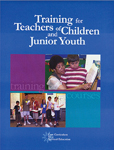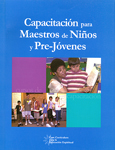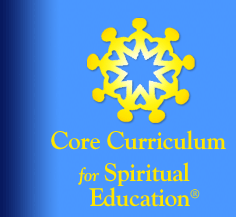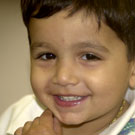Core Curriculum Teacher Training
Core Curriculum Teacher Training
Training for Teachers of Children and Junior Youth
Teacher Training and your Regional Training Institute
Individuals inspired to become teachers of children through their study of Ruhi courses may wish to seek teacher training through the Core Curriculum. Regional Training Institutes provide Core Curriculum teacher training, designated by the National Spiritual Assembly as the branch of teacher training courses for people interested in teaching children’s classes. Together these training courses provide important community development by fostering a proper attitude towards children and teachers of children, along with the knowledge and skills to provide spiritual education for children throughout the community.
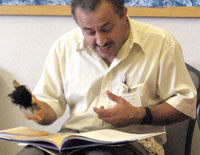
Since 1992, training for teachers using the Core Curriculum has enabled attractive and effective Bahá’í classes for children and junior youth to flourish in communities across the United States and in dozens of other countries around the world. A system of careful training and hands-on practice supports teachers to become fully adept at using these materials to teach children and junior youth. Feedback from all these training experiences has led to continuous refinement of classroom materials for teachers and the process of teacher training, and to the recent publication of workbooks for training teachers and for systematically developing their capacities.
topTraining for Teachers of Children and Junior Youth
The initial 32-hour training program is available both in English and in Spanish. It includes four 8-hour modules:

Module One: The Bahá’í Teacher — Station, Role, Qualities and Preparation
Qualities of Bahá’í Teachers
Learning From the Example
of the Master
Role and Station of the Teacher:
An Exploration of the Writings
Spiritual Development of the Teacher
Setting Personal Goals within
the Curriculum Framework
Module Two: The Spiritual Reality of the Child
Recognizing the Spiritual Reality of the Child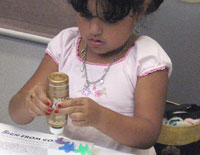 A Perspective on Human Development
A Perspective on Human Development
Understanding Stages of Maturity and
Developmental Patterns
The Process of Spiritual Growth
Attending to Capacity, Capability,
and Interest
Exploring the Process of Transformation
Lessons Conveyed through Nature
Creating Models for Spiritual Growth
Facilitating Spiritual Growth
The Teacher as Mentor, Gardener,
and Doctor
Module Three: Teaching with Core Curriculum Materials
The Content: Deciding What to Teach
The Core Curriculum Scope and Sequence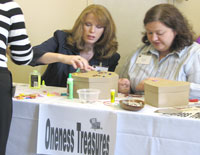 The Process: Deciding How to Teach
The Process: Deciding How to Teach
the Content, and How Students
Will Learn
Integrating Content and Process with
the Diverse Capacities, Capabilities,
and Interests of Learners
Planning Lessons Using the Lesson Planning Guides and Storybooks
Practice Teaching—Feedback and Support
Evaluating Learning
Systematic Use—A Continuum
of Learning
Making Use of Available Resources
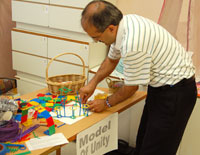
Module Four: Beyond the Classroom
— The Child Development
Centered Community
Assisting Children to Fulfill their Destiny
before God
The Child Development Centered
Community
Roles and Responsibilities Within
the Community
Children’s Classes Open to All
From Here to There: Vision to Reality
Appreciating and Celebrating Diversity in the Classroom and Community
top

